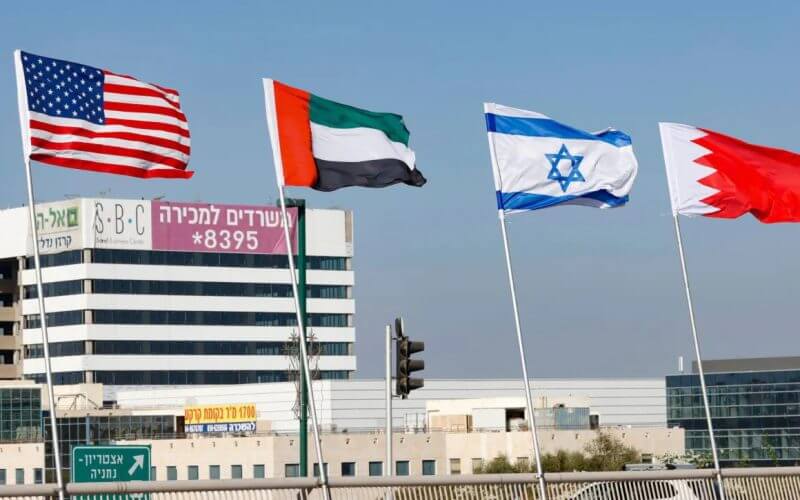The House of Representatives passed a bipartisan bill on June 13 to create a new envoy position to deal with the Abraham Accords—the normalization agreements between Israel and, so far, four Mideast and Northern African countries.
The Special Envoy for the Abraham Accords Act, co-sponsored by Reps. Ritchie Torres (D-N.Y.) and Mike Lawler (R-N.Y.), passed 413–13, meeting the required two-thirds majority needed for passage.
Voting against the bill were Reps. Jamaal Bowman (D-N.Y.), Cori Bush (D-Mo.), Jesus “Chuy” Garcia (D-Ill.), Barbara Lee (D-Calif.), Summer Lee (D-Pa.), Thomas Massie (R-Ky.), Betty McCollum (D-Minn.), Rich McCormick (R-Ga.), Alexandria Ocasio-Cortez (D-N.Y.), Ilhan Omar (D-Minn.), Ayanna Pressley (D-Mass.), Delia Ramirez (D-Ill.) and Rashida Tlaib (D-Mich.). Eight members did not vote.
The Special Envoy for the Abraham Accords is a State Department position, reporting to the Secretary of State. The ambassador-level role would be the primary adviser to, and coordinate efforts across, the United States government relating to expanding and strengthening the Abraham Accords. Appointed by the president, the envoy would also need Senate confirmation.
The special envoy, according to the bill, would be responsible for “encouraging countries without diplomatic relations with Israel to establish formal diplomatic, economic, security, and people-to-people ties” and “seeking to expand and strengthen existing relationships between Israel and Muslim-majority countries, including those outside the geographic scope of the Near Eastern Affairs Bureau of the Department of State, to ensure that all parties reap tangible security and economic benefits for their citizens.”
Related Story: Middle East 2.0 – What’s Possible After the Abraham Accords?









